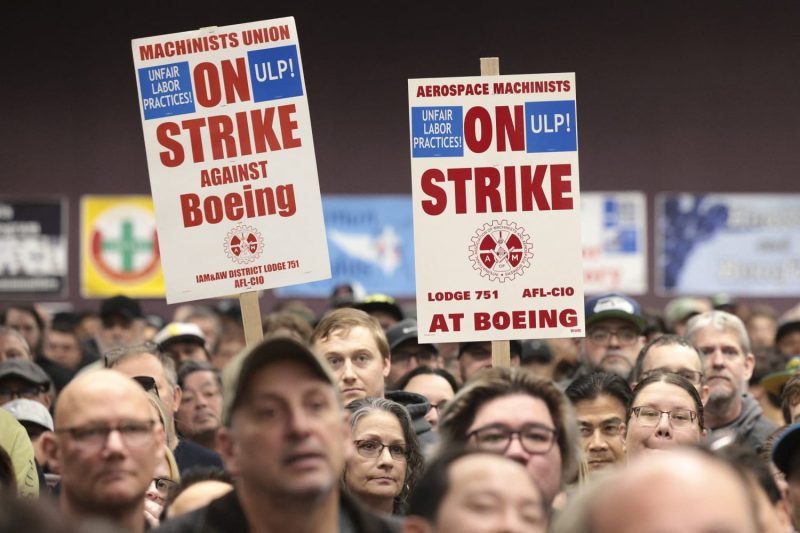In a recent turn of events at Boeing, machinists have made a significant decision to reject a new labor contract, thus prolonging the ongoing strike that has been affecting the company. The rejection of the proposed contract has raised concerns and created uncertainties within the aerospace industry, as stakeholders closely monitor the implications of this development.
The decision to reject the new labor contract comes amidst a backdrop of strained relations between Boeing and its machinists. The negotiation process leading up to the proposed contract was evidently challenging, with both parties having differing perspectives and priorities. The rejection of the contract indicates a fundamental misalignment between the demands of the machinists and the offerings of Boeing, highlighting the complex nature of labor relations within the company.
One of the key factors that likely influenced the machinists’ decision to reject the contract is the perceived inadequacy of the proposed terms. Machinists are known to be highly skilled workers who play a crucial role in the manufacturing and assembly of Boeing’s aircraft. As such, they have expectations regarding fair compensation, benefits, and working conditions that are commensurate with the nature of their work. The rejection of the contract suggests that the proposed terms fell short of meeting these expectations, leading to dissatisfaction among the machinists.
Furthermore, the rejection of the new labor contract is likely to have far-reaching consequences for Boeing and its operations. The prolonged strike resulting from this development is expected to impact the production schedules of the company, potentially causing delays in the delivery of aircraft to customers. Such delays can have significant financial implications for Boeing, as well as implications for its reputation and relationships with customers.
In response to the rejection of the contract, Boeing will need to reassess its approach to labor relations and engage in constructive dialogue with the machinists to reach a mutually acceptable agreement. Building trust, addressing the concerns of the machinists, and finding common ground will be essential in resolving the current impasse and moving forward in a positive direction.
Overall, the rejection of the new labor contract by Boeing machinists underscores the challenges inherent in labor-management relations and the importance of effective communication, negotiation, and compromise in resolving conflicts. The outcome of this situation will have implications not only for Boeing and its machinists but also for the broader aerospace industry as a whole. As all parties involved navigate this complex situation, finding a resolution that is fair and sustainable for everyone will be paramount.
